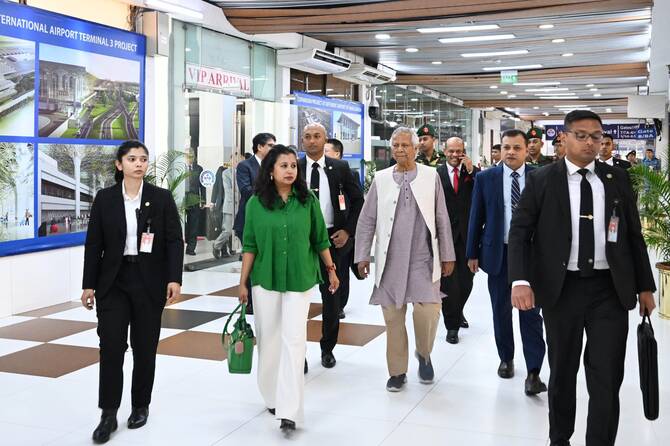Dhaka: The head of Bangladesh’s interim government, Muhammad Yunus, departed on Wednesday for China, where he will meet President Xi Jinping and also mark his first bilateral state visit since assuming the role of chief adviser, his office said.
Yunus, Nobel Peace Prize laureate and economics professor, will address the Boao Forum for Asia in Hainan, southern China — an annual conference focusing on the changing role of Asia — from where he will travel to Beijing.
His bilateral with Xi is scheduled for Friday, marking their first meeting since Yunus assumed office in August 2024.
“The main focus of this visit is to boost economic cooperation … We are expecting that a number of (memoranda of understanding) will be inked during this visit. The MoUs will cover mostly the areas of economic cooperation,” Azad Majumder, Yunus’ deputy press secretary, told Arab News.
“One of the main focuses of discussion will be bringing more investments from China in our dedicated Chinese Economic Zone.”
Munshi Faiz Ahmad, Dhaka’s former envoy to Beijing, said it was significant that Yunus was choosing China for his first state visit, especially as relations with another regional superpower, India, have soured since the change in government.
India was a close ally of former Prime Minister Sheikh Hasina’s government. She has also sought refuge in New Delhi after deadly protests that unseated her last year. Until now, India has not responded to Bangladesh’s request to send her home for trial.
The situation opens the door for China — India’s key rival — to expand its footprint.
“For our interim government, this China visit is very significant. It’s the first bilateral visit to any country by Prof. Yunus as the chief adviser,” Ahmad said.
“It’s an opportunity for Bangladesh to boost the relationship with China and explore new areas of cooperation …. It’s an issue of mutual benefit for Bangladesh and China.”
Yunus’ office said he will also seek Chinese investment in healthcare and the establishment of a large hospital in Bangladesh to reduce the trend of medical tourism abroad.
Many Bangladeshis have sought treatment in neighboring India, but it has lately become difficult to obtain Indian visas.
“It has been reported that China is interested in providing a grant of $138 million for building medical facilities. If that proposal moves forward, it will be a good thing. There is a ready opportunity for China, as India is not issuing enough visas for Bangladeshis now. A lion’s share of our medical tourism can be shifted to China,” Humayun Kabir, former Bangladeshi ambassador to the US, told Arab News.
“There are opportunities to attract more investments from China. Our government is very eager in this regard. We have dedicated an economic zone for Chinese investors … Secondly, we are in need of budget support at this moment. If China provides some financial assistance, it would be of great help. Our previous regime also sought this support, but it didn’t materialize.”
























